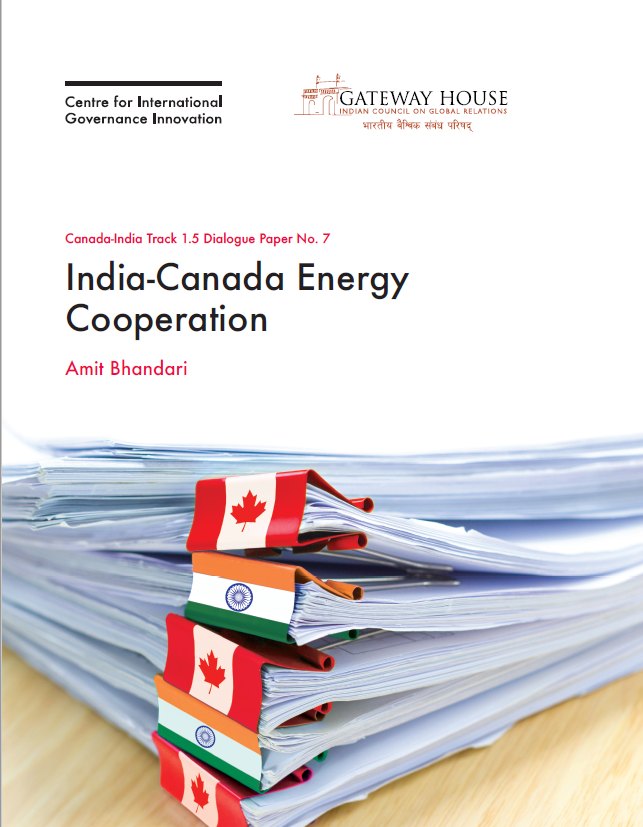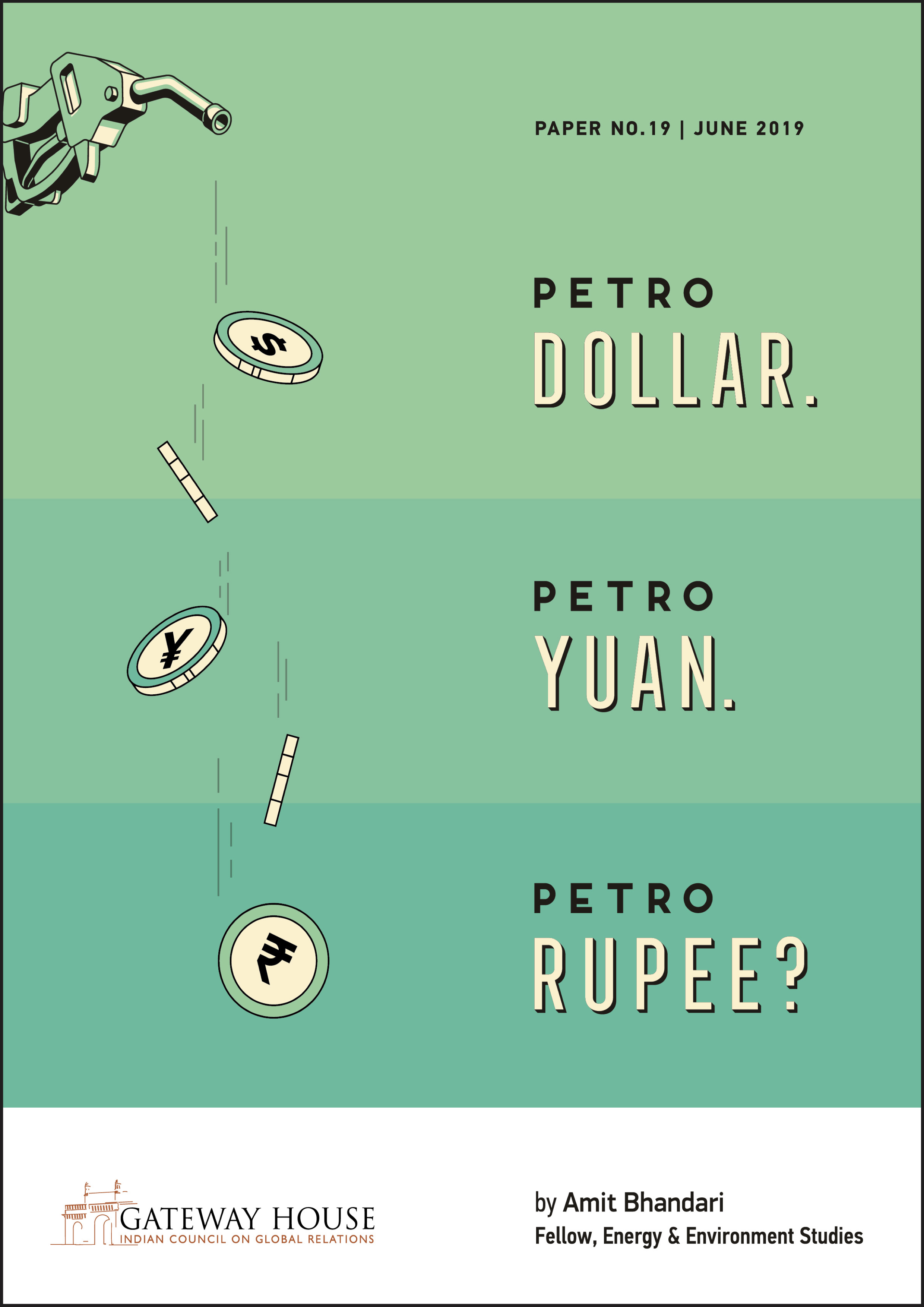India-Canada energy cooperation
Canada has been one of the biggest success stories in oil over the past few years. India should consider financial investments in Canadian energy assets as a means to secure its energy supplies.
 Courtesy: Gateway House & CIGI
Courtesy: Gateway House & CIGI
Canada has been one of the biggest success stories in oil over the past few years. India should consider financial investments in Canadian energy assets as a means to secure its energy supplies.
 Courtesy: Gateway House & CIGI
Courtesy: Gateway House & CIGI
Canada has been one of the biggest success stories in oil over the past few years. India should consider financial investments in Canadian energy assets as a means to secure its energy supplies. This paper studies the feasibility and prospects for Indian investment in Canada's petroleum sector.
 Courtesy: Shutterstock
Courtesy: Shutterstock
The Coronavirus pandemic has caused crude oil prices to crash almost 40% even as Saudi Arabia and Russia pump more oil into the market. Fears are rife that this crisis will hit demand. There are repercussions on the U.S., the world’s top oil producer, on India, one of its new clients, and on the Gulf Cooperation Council countries
 Courtesy: Atlantic Council
Courtesy: Atlantic Council
The Atlantic Council Global Energy Forum, held in Abu Dhabi on 10-12 January 2020, had the top businesses and analysts of the global energy industry. It was also part of a larger event, the annual Abu Dhabi Sustainability Week, which aims to be a global platform for sustainability in various industries
 Courtesy: Gateway House
Courtesy: Gateway House
The global energy scenario has changed in every way – be it in demand, supply or energy type – in the last two decades. The only unchanged component has been the currency of energy trade: the U.S. Dollar. Lately, though, the Chinese Yuan has emerged as a challenger. Can the Indian Rupee be a third contender?
 Courtesy: Gateway House & CIGI
Courtesy: Gateway House & CIGI
The use of climate intervention technologies has not taken into sufficient account the social dimensions of climate intervention research, which includes citizen participation and pooling of knowledge resources. To fill this lacuna, Canada and India can examine what participation in climate intervention research means in the context of an African country to be able to evolve a more international view; urge both countries to conduct national policy discussions on climate intervention research; and increase public awareness of climate intervention technologies
Yuan Peng, Vice President, and Dr. HU Shisheng, director, respectively of the Institute of South & Southeast Asian and Oceanian Studies, China Institute of Contemporary International Relations, Beijing, spoke to Gateway House about working towards ‘the final goal of denuclearisation’, India-China relations since the Doklam stand-off and addressing security concerns raised by the Belt and Road Initiative
 Courtesy:
Courtesy:
The removal of 11 top ministers in the Riyadh government last week by the young crown prince Mohammad bin Salman, is a geopolitical upheaval, the implications are serious. Domestically, the kingdom is seeking to liberalise its conservative society and move away from oil-dependency – evident from the expected listing of its crown jewel Aramco. For India, which imports oil largely from West Asia, instability could cause a spike in prices, leaving less for its ambitious reforms. Globally, there is now space for new alignments – in the Great Power plays, in the Shia-Sunni rivalry, and in the war on terrorism.
 Courtesy: Gateway House
Courtesy: Gateway House
Trends in technology, geopolitics and geoeconomics have dramatically transformed the global energy scenario in the last two years. This means favourable conditions for import-dependent India, which must use the opportunities available to reduce its vulnerability to high energy prices. The jump in oil prices past the $60 mark suggests that India must act with alacrity. India’s Energy Footprint Map offers a profile of India’s global trade and investment in energy, and indicates what India can do to access cheap and reliable supplies
 Courtesy: Wikipedia
Courtesy: Wikipedia
The U.S. and Canada offer an opportunity for India to acquire large scale oil and gas fields in politically stable countries at a low price. A financial investment in energy companies will protect India against a rise in energy prices without raising concerns in host countries.